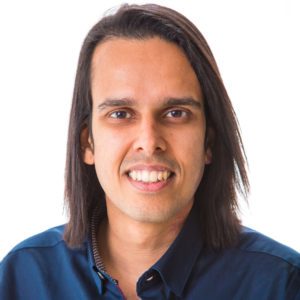No two things are the same. Even two leaves on the same tree, while similar in many ways will have their own distinct size, shape and patterning, no matter how subtle. The same is true of human beings. Just ask parents with twins. They begin to notice their babies’ personalities very early on! Life is so full of noise about what you should be doing and how you should be doing it that you can so easily forget your individuality. Paradoxically, you must engage in a process of becoming who you are.
Individuation
Carl Jung talked about the process of becoming who you are in what he called individuation — embracing “our innermost, last, and incomparable uniqueness…becoming one’s own self”. For Jung, the very “goal of psychic development is the self”.
The process of becoming who you are is in a sense about removing ideas and stories about who you should be. It is about becoming attuned to yourself and your inner world, and how you relate to yourself. It is about noticing the glory of your uniqueness in all its fullness, flaws and all.
Denial
This is particularly important for aspects of your character that you may have suppressed for whatever reason. Perhaps because of past, forgotten experiences even stretching back to your childhood. Aspects of your character that may have slipped out of your conscious awareness, but nevertheless remain within you, hidden out of sight. Undeniably present and waiting, itching to be let out.
The more that we deny these aspects of who we really are, the more they build up silently, like water behind a dam. And, when the dam eventually breaks, it is let out unrestrained and in a potentially destructive way. This might only reinforce the idea that these aspects of your character need to be suppressed even further. When the very reason for the destructive force is suppression in the first place!
Becoming who you are
The process of becoming who you are requires us to notice that the very idea of “the self” is a rabbit hole. One you must go down if you are serious about understanding yourself more. It will call on you to investigate the reality of the conscious narrative of self that you tell — the tale of “I am such and such a person”.
It will also call on you to investigate the deeper, often non-conscious, beliefs that guide your actions behind the scenes. Beliefs and behaviours shaped since the time of your birth and which continue to evolve through their ongoing interaction with conscious awareness.
Answers flow from the questions
But, even an exploration of self, based on the conscious and non-conscious is perhaps still very rudimentary? Because can an organism really be described if not in relation to its whole environment? Is ‘self’ also not inseparably bound-up with the world outside of our skin? Can we truly describe a fish without describing water?
The answers may not seem straightforward, but they flow from a deeper engagement with the questions. Questions you must ask if you are interested in becoming who you are.
_____________________________________________________________________________________________



Recent Comments